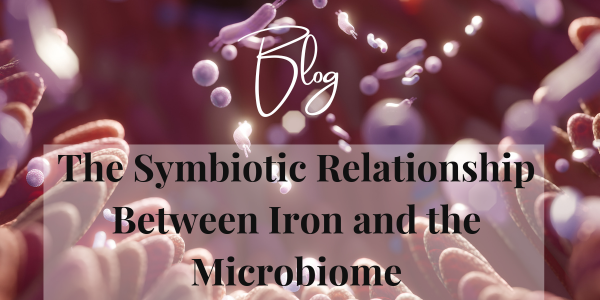Envisioning the Interplay of Iron and Microbiota in Human Health
In this article, we examine the intricate symbiosis between iron—a vital mineral in human physiology—and the gut microbiome, the complex community of microorganisms residing within our gastrointestinal tract. Our exploration is grounded in the meticulous research conducted by Rusu et al. (2020), delineating the mutualistic relationship between iron levels and bacterial proliferation.
The Symbiotic Relationship Between Iron and the Microbiome
The human microbiome constitutes a vast ecosystem with a significant impact on our overall well-being. Iron, an essential element in numerous metabolic processes, also plays a pivotal role in the development and maintenance of this internal ecosystem. The investigation by Rusu et al. postulates that a balance between iron supplementation and microbial growth is critical. Excessive iron may lead to dysbiosis, whereas its deficiency can hamper the gut's bacterial diversity.
The Impact of Lactic Acid on Iron Absorption
Our newsletter elucidates the intriguing dynamic wherein specific bacterial strains, particularly those producing lactic acid, can potentiate the absorption of iron. These bacteria metabolize the mineral, enhancing its bioavailability, and thus, facilitating a more efficient uptake by the human host. The researchers underscore the importance of this interaction, proposing that leveraging it through targeted probiotic intake could offer therapeutic avenues for individuals with iron deficiency.
The Reciprocal Enhancement of Bacterial Growth by Iron
Furthermore, the research underscores that iron availability can galvanize the multiplication of particular bacterial species within the gut microbiota. This expanded bacterial presence suggests not only a diverse microbiological landscape but also has implications for the broader metabolic and immunological status of the host.
Integrated Insights from Rusu IG et al.
In summary, the comprehensive literature review by Rusu IG and colleagues provides an authoritative analysis of how iron supplementation can modulate gut microbiota, while simultaneously, certain bacterial strains may modify iron metabolism. Their findings suggest that a strategic approach to probiotic and iron intake holds the potential to optimize not just gastrointestinal health, but systemic physiological states as well.
Rusu IG, et al. (2020). Iron Supplementation Influence on the Gut Microbiota and Probiotic Intake Effect in Iron Deficiency-A Literature-Based Review. Nutrients. 12(7):1993. [doi: [10.3390/nu12071993]](https://doi.org/10.3390/nu12071993).
Rusu IG, et al. (2020). Iron Supplementation Influence on the Gut Microbiota and Probiotic Intake Effect in Iron Deficiency-A Literature-Based Review. Nutrients. 12(7):1993. [doi: [10.3390/nu12071993]](https://doi.org/10.3390/nu12071993).

Comments
Post a Comment